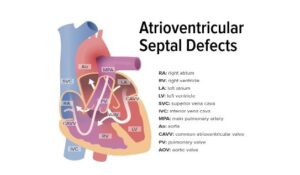Introduction
p>Atrioventricular (AV) conduction is the process by which electrical impulses from the atria are transmitted to the ventricles. The AV node is a group of specialized cells located in the heart’s septum that helps to regulate this conduction.
Problems of Heart Rhythm
When AV conduction is delayed or blocked, it can cause a variety of heart rhythm problems, including:
- First-degree AV block
- Second-degree AV block
- Third-degree AV block (complete heart block)
First-degree AV block is the mildest form of AV block. It occurs when the electrical impulse from the atria takes longer than normal to reach the ventricles. This can cause the heart rate to slow down slightly.
Second-degree AV block is a more serious condition. It occurs when some of the electrical impulses from the atria are blocked from reaching the ventricles. This can cause the heart rate to slow down significantly, or it can cause irregular heartbeats.
Third-degree AV block is the most serious form of AV block. It occurs when all of the electrical impulses from the atria are blocked from reaching the ventricles. This means that the ventricles must contract on their own, without any input from the atria. This can cause a very slow heart rate, which can be life-threatening.
Some Cause of AV Conduction

The causes of AV conduction delay or block can vary. Some common causes include:
- Heart disease, such as coronary artery disease or heart attack
- Inflammation of the heart muscle (myocarditis)
- Scar tissue in the heart (cardiac fibrosis)
- Certain medications, such as beta-blockers and calcium channel blockers
- Congenital heart defects
AV conduction delay or block can be diagnosed with an electrocardiogram (ECG). Treatment for AV conduction delay or block depends on the severity of the condition and the underlying cause. In some cases, no treatment may be necessary. In other cases, medications or a pacemaker may be needed.
If you have any concerns about AV conduction delay or block, talk to your doctor.
Conclusion
To conclude, atrioventricular (AV) conduction is an essential process that ensures effective communication between the heart’s upper and lower chambers. Disruptions in AV conduction can lead to various cardiac rhythm abnormalities, potentially impacting heart function and overall health. A comprehensive understanding of AV conduction abnormalities aids in accurate diagnosis and appropriate management.



